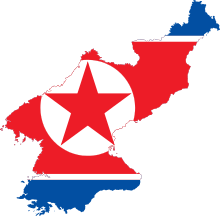
During the past few weeks, North Korea has been the subject of outsized news coverage. The recent peacocking by Supreme Leader Kim Jong Un – from domestic martial law policies to tests of the country’s nuclear weapons capabilities – has successfully distracted the media from North Korea’s continued economic woes. For starters, the country’s plans for agricultural reforms have been deep-sixed, and, to top it off, I estimate that North Korea’s annual inflation rate hit triple digits for 2012: 116%, to be exact.
Unfortunately, the official shroud of secrecy covering North Korea’s official information and statistics remains more or less intact. But, some within North Korea have begun to shed light on this “land of illusions”. For example, a team of “citizen cartographers” helped Google construct its recent Google Maps’ exposition of North Korea’s streets, landmarks, and government facilities. In addition, our friends at DailyNK have successfully been reporting data on black-market exchange rates and the price of rice in North Korea – data which allowed me to conclude that the country experienced an episode of hyperinflation from December 2009 to mid-January 2011.
Yes, things may be getting a bit brighter in North Korea. According to recent reportage by Carl Bialik of the Wall Street Journal, statisticians from the U.S. and Europe are bravely making their way into North Korea to teach students basic statistical methods. These lessons may only represent material from an introductory stats course, but they are a step in the right direction, because they force students to at least think about analyzing data. Unfortunately, in North Korea, reliable data continue to be a scarce commodity.
While these developments in North Korea have hardly shaken the dismal economic status quo, one can only hope that they will start to bring about some much needed change . But, don’t hold your breath. If flamboyant basketball hall-of-famer Dennis Rodman’s recent “basketball diplomacy” mission to Pyongyang is evidence of anything, it’s that North Korea is more interested in scoring cheap headlines than it is in turning around its economy. Until North Korea begins to open up its markets and make transparency a priority, its economic prospects will be cloudy, at best.
Author Steve H. Hanke

0 responses on "North Korea’s Economic Outlook: Cloudy with a Chance of Statistics."